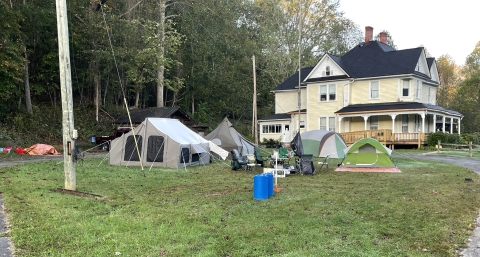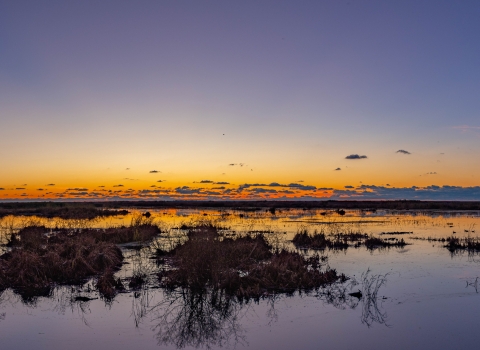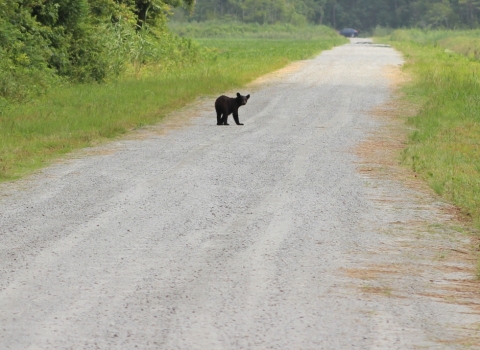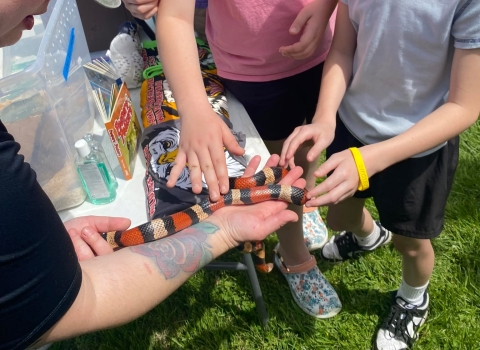On September 27, 2024, the northeastern arm of Hurricane Helene dropped catastrophic amounts of rain on the already saturated mountains of eastern Tennessee and western North Carolina. Some areas in North Carolina received over two feet of rain in a very short period of time. The geography of western North Carolina and east Tennessee is not designed to handle this level of precipitation. The result of this event was historic flooding and damage to an enormous swath of the southern Appalachians. The historic event knocked out electricity to millions and caused major destruction to life, property, and critical infrastructure in the region.
The major damage that occurred near Erwin National Fish Hatchery is concentrated around the Nolichucky River. However, the hatchery only received very slight damages from downed limbs. Many others in the area were not as lucky. Recovering from this historic event will take many years. In the days, and now months, after the flooding occurred, support has poured into the area from all over the country to help those in need.
Erwin National Fish Hatchery was thrilled to be able to contribute to the flood relief efforts in a unique way, by providing a place for relief workers to stay. A rapid response team from the Appalachian Conservation Institute contacted us just days after the flood and were on site very quickly. Over the course of more than one week, Retired U.S. Fish and Wildlife Deputy Chief of Refuges Rick Huffines lead the team of skilled sawyers and heavy equipment operators in countless flood recovery projects in our region. The Appalachian Conservation Institute Team assisted with restoring access to people’s homes who were cut off by landslides and downed trees, replaced buried culverts, donated and installed generators, and many other tasks that helped dozens of families begin the process of rebuilding.






